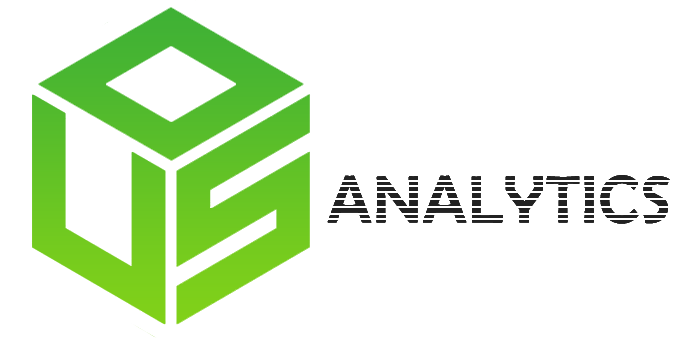Biosimilars Market Overview:
According to the USD Analytics published latest research report, the global “Biosimilars Market” is expected to grow at a tremendous CAGR of 15.5% during the forecast period 2023-2030.
Biosimilars are biologic products similar to a reference biologic product with no clinically relevant changes. The biosimilars business has expanded significantly over the past decade due to rising demand for inexpensive biologic treatments, particularly in developing nations. The industry will grow further as more biologic medications become available off-patent and additional biosimilar products are authorized by regulatory bodies worldwide.
Market Drivers:
The cost reductions provided by biosimilar products are one of the primary drivers of the biosimilar business. Biologic drugs are sometimes quite costly, limiting access for many patients. Conversely, biosimilars may substantially reduce costs, making life-saving medicines more cheap and accessible to patients. As a result, demand for biosimilars has surged in established and developing economies.
Biosimilars provide patients with a more cost-effective treatment choice, boosting demand for these medicines in the healthcare business. The rising incidence of chronic illnesses such as cancer, diabetes, and autoimmune disorders is another factor driving the biosimilars industry. The most effective therapy option for chronic diseases is frequently biological medications, but they may be prohibitively costly.
The biosimilars industry benefits from regulatory backing, cost reductions, and rising demand for effective therapies. Many nations throughout the globe have set criteria for biosimilar research and clearance, resulting in a more predictable and stable regulatory environment for businesses. This has stimulated investment in the development of biosimilar goods and has aided in driving industry innovation.
Market Trends:
Discounted biosimilar costs will continue substantially influencing total biosimilar sales, with patients benefiting the most. Manufacturers in emerging biosimilar markets have been dropping their pricing with steep reductions, which is projected to continue during the projection period and promote the expansion of the global biosimilar market.
Furthermore, biosimilar producers will likely experiment with different manufacturing quantities or scales to maximize profitability. During the projected period, this creates a positive growth potential for biosimilar manufacturing businesses, as they may be able to produce many biosimilar medicines in the same facility.
Market Restraints:
Biosimilar development requires major expenditures, technological skills, clinical trial knowledge, scientific standards, and quality systems. Extensive knowledge is required to guarantee that a biosimilar drug is ‘highly similar’ to the reference biologic, with no clinically substantial variations in the safety profile, effectiveness, or potency. This entails thoroughly identifying and comparing the biosimilar’s structural and functional features utilizing cutting-edge technologies. The comparative structural and functional characterization will make the most difference in clinical predictability for a biosimilar. Another significant problem in biosimilar production is the capacity to regulate variability throughout the manufacturing process, where the final products are identical to their biological counterparts.
Download Sample Brochure @ https://www.usdanalytics.com/sample-request/7412
Recent Developments:
- Amneal Pharmaceuticals, Inc. gained US Food and Drug Administration (“FDA”) clearance in May 2022 for a Biologics License Application (“BLA”) for pegfilgrastim-pbbk, a biosimilar of Neulasta. The product will be sold under the brand name FYLNETRA.
- BYOOVIZ (ranibizumab-nuna), a biosimilar to LUCENTIS (ranibizumab), was approved by the Food and Drug Administration (FDA) in September 2021 for the treatment of neovascular age-related macular degeneration, macular edema following retinal vein occlusion, and myopic choroidal neovascularization. BYOOVIZ was the first ophthalmology biosimilar to be licensed in the US.
Segmentation Analysis:
The global biosimilars market is segmented by product into recombinant glycosylated proteins, recombinant non-glycosylated proteins, and recombinant peptides; by indication into chronic diseases, oncology, autoimmune diseases, infectious diseases, blood disorders, growth hormone deficiency, and others.
On the basis of the indication, the market is segmented into chronic diseases, oncology, autoimmune diseases, infectious diseases, blood disorders, growth hormone deficiency, and others. Oncology is the market’s biggest segment. The cheaper cost of biosimilars compared to novel biologics and the high incidence and prevalence of cancer drive growth in this market.
Regional Analysis:
The global biosimilars market is segmented into North America, Europe, South America, Asia Pacific, and Middle East & Africa.
Europe accounted for more than 45% of the global industry in 2021. Over 60 biosimilars have previously been approved in the European Union (EU), and many more are now being evaluated. As a result, the biosimilars market in Europe is expected to expand soon.
Download Sample Brochure @ https://www.usdanalytics.com/sample-request/7412
Competitive Landscape:
The prominent companies contributing to the global biosimilars market growth include Pfizer, Inc., Intas Pharmaceuticals Ltd., Biocon, Dr. Reddy’s Laboratories Ltd., Teva Pharmaceutical Industries Ltd., Sandoz International GmbH (A Novartis Division), Celltrion, Inc., Amgen, Inc., STADA Arzneimittel AG, and Apotex, Inc.
Related Reports:
Biopharmaceutical CMO And CRO Market Size, Share, Trends, Growth Outlook and Opportunities to 2030-by Source (Mammalian, Non-mammalian), by Service (Contract Manufacturing, Contract Research), by Product (Monoclonal antibodies (MAbs), Recombinant Proteins, Vaccines, Antisense, RNAi, & Molecular Therapy, Biosimilars, Others), and Companies Report
Biopharmaceuticals Contract Manufacturing Market Size, Share, Trends, Growth Outlook and Opportunities to 2030-by Type (Mammalian, Non-mammalian), by Service (Process Development, Fill & Finish Operations, Analytical & QC studies, Packaging), by Product (Monoclonal antibodies (MABs), Recombinant Proteins, Vaccines, Antisense, RNAi, & Molecular Therapy, Biosimilars, Others), by Therapeutic Area (Oncology, Autoimmune Diseases, Metabolic Diseases, Cardiovascular Diseases, Neurology, Infectious Diseases, Others), and Companies Report
Media Contact
Company Name: USD Analytics
Contact Person: Harry James
Email: Send Email
Country: India
Website: https://www.usdanalytics.com/industry-reports/biosimilars-market

